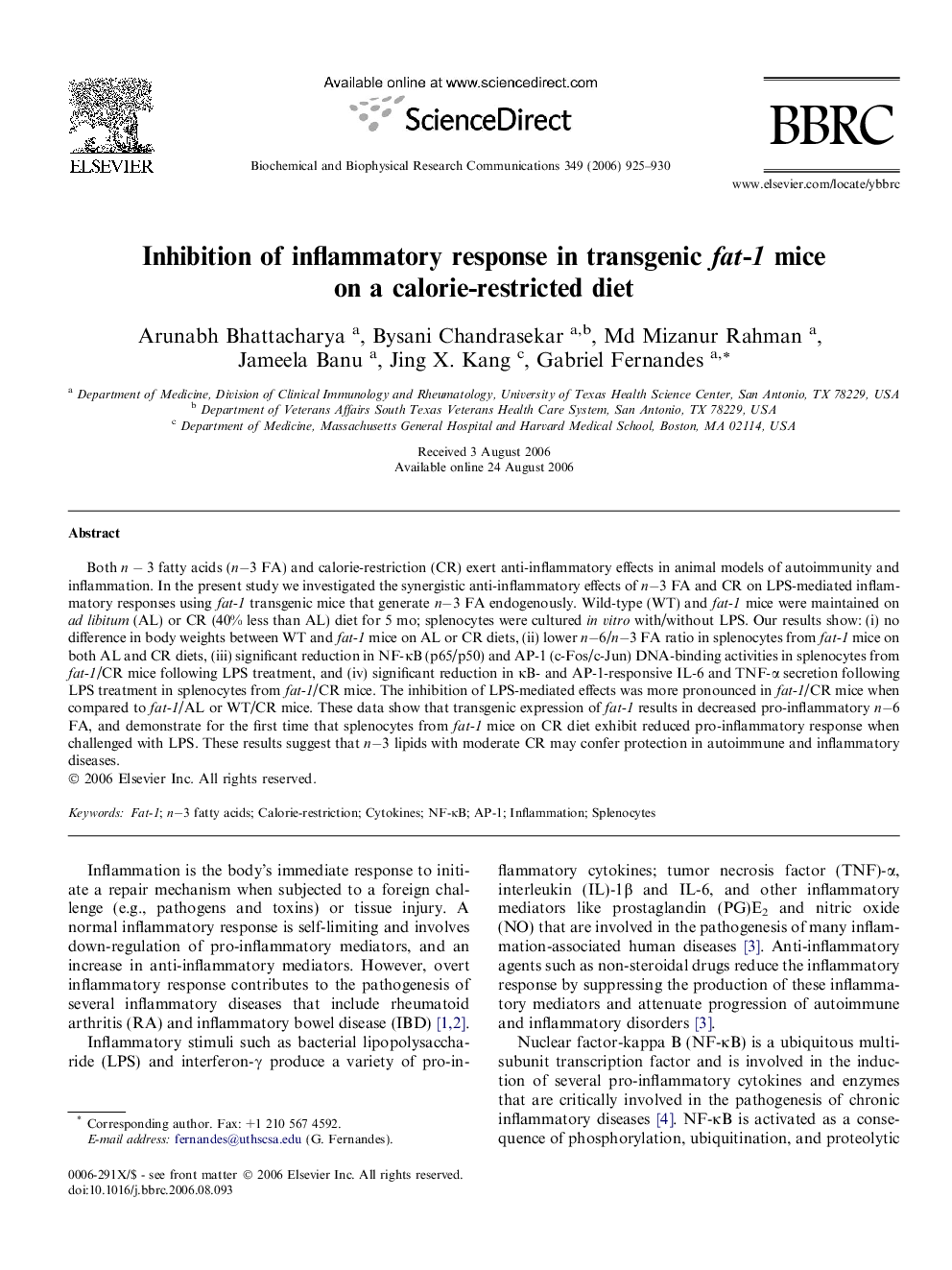| Article ID | Journal | Published Year | Pages | File Type |
|---|---|---|---|---|
| 1938832 | Biochemical and Biophysical Research Communications | 2006 | 6 Pages |
Both n − 3 fatty acids (n − 3 FA) and calorie-restriction (CR) exert anti-inflammatory effects in animal models of autoimmunity and inflammation. In the present study we investigated the synergistic anti-inflammatory effects of n − 3 FA and CR on LPS-mediated inflammatory responses using fat-1 transgenic mice that generate n − 3 FA endogenously. Wild-type (WT) and fat-1 mice were maintained on ad libitum (AL) or CR (40% less than AL) diet for 5 mo; splenocytes were cultured in vitro with/without LPS. Our results show: (i) no difference in body weights between WT and fat-1 mice on AL or CR diets, (ii) lower n − 6/n − 3 FA ratio in splenocytes from fat-1 mice on both AL and CR diets, (iii) significant reduction in NF-κB (p65/p50) and AP-1 (c-Fos/c-Jun) DNA-binding activities in splenocytes from fat-1/CR mice following LPS treatment, and (iv) significant reduction in κB- and AP-1-responsive IL-6 and TNF-α secretion following LPS treatment in splenocytes from fat-1/CR mice. The inhibition of LPS-mediated effects was more pronounced in fat-1/CR mice when compared to fat-1/AL or WT/CR mice. These data show that transgenic expression of fat-1 results in decreased pro-inflammatory n − 6 FA, and demonstrate for the first time that splenocytes from fat-1 mice on CR diet exhibit reduced pro-inflammatory response when challenged with LPS. These results suggest that n − 3 lipids with moderate CR may confer protection in autoimmune and inflammatory diseases.
